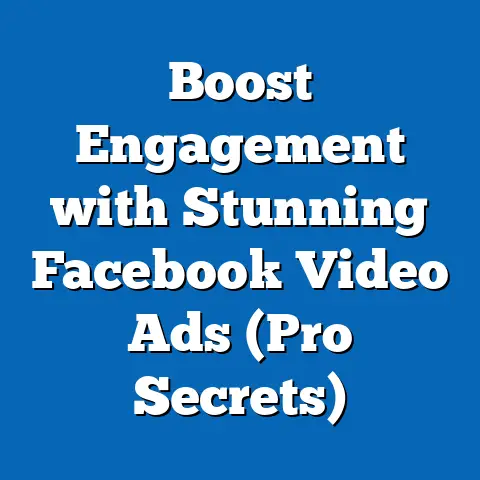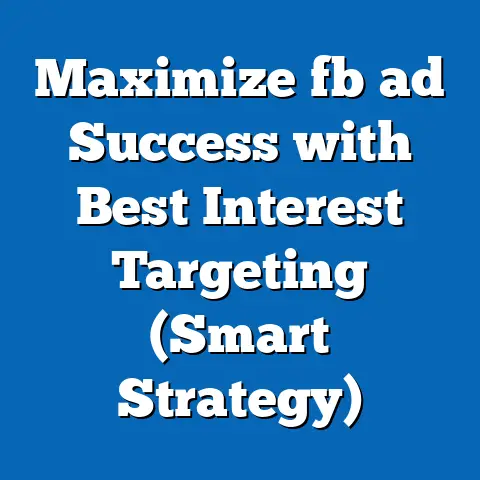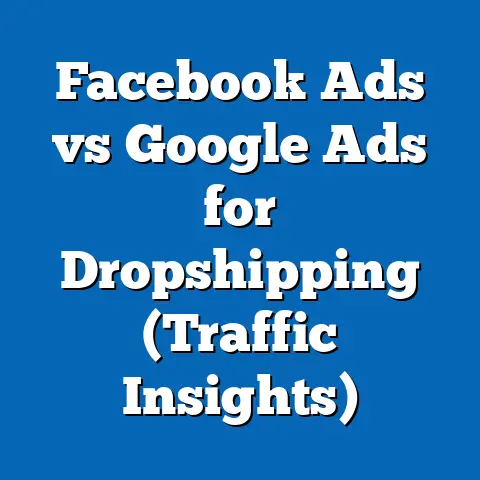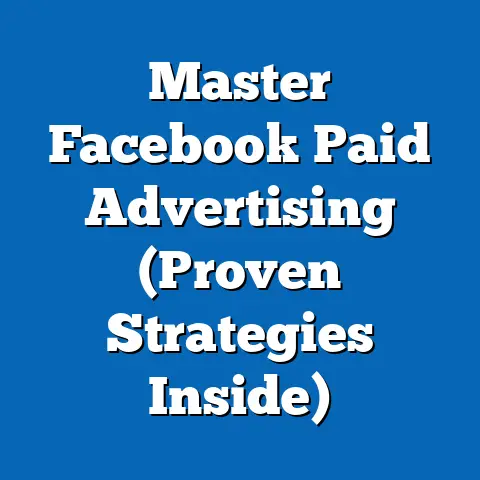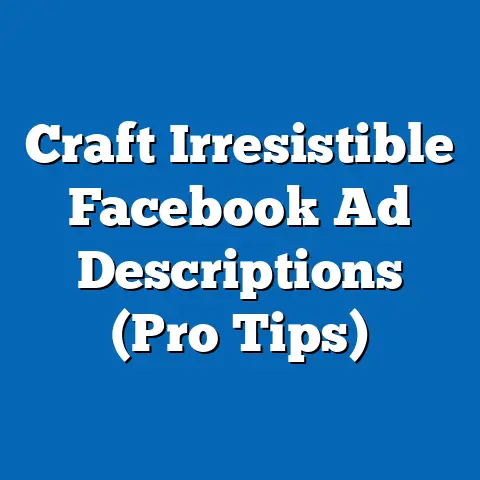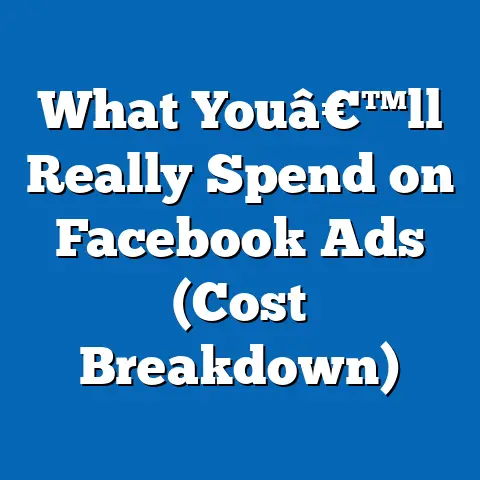Boost Raleigh Facebook Ads (Unlock Proven Strategies)
Imagine you’re Maria, the owner of a charming little bakery nestled in the heart of downtown Raleigh.
Her pastries are divine, her coffee is rich, and her ambiance is inviting.
Yet, despite all this, she struggles to attract a consistent stream of customers.
She’s tried newspaper ads, local radio spots, and even flyers, but the results are underwhelming.
She’s pouring money into marketing that isn’t delivering.
Now, imagine Maria decides to try something different: Facebook ads.
What if she could learn proven strategies to target her ideal customers – the busy professionals craving a mid-morning treat, the students needing a caffeine boost before class, or the families looking for a sweet ending to their weekend – all within a few-mile radius of her bakery?
What if she could see a real boost in sales and build a loyal following, simply by unlocking the power of Facebook advertising?
That’s the power I want to explore with you.
In this article, I’ll guide you through the world of Facebook advertising specifically tailored for businesses in Raleigh, North Carolina.
We’ll ditch the generic advice and dive into strategies that truly resonate with the local market.
I’ll share insights I’ve gained from years of experience working with local businesses, turning their Facebook ad campaigns from budget-draining experiments into revenue-generating machines.
Let’s get started!
Understanding the Raleigh Market
Raleigh isn’t just any city; it’s a vibrant hub of innovation, education, and culture.
To effectively advertise here, you need to understand its unique characteristics.
Raleigh Demographics & Economic Landscape
Raleigh is a growing city, fueled by a young, educated workforce.
Home to renowned universities like NC State, it attracts a diverse population of students, professionals, and families.
Economically, Raleigh thrives on technology, healthcare, and research, boasting a strong job market and a high quality of life.
Understanding this landscape is crucial.
A generic ad campaign might fall flat, but one that speaks directly to the interests and needs of Raleigh residents is far more likely to succeed.
The Importance of Local Targeting
Why is local targeting so vital?
Because it allows you to reach the people who are most likely to become your customers.
Consider Sarah, a local yoga instructor.
She doesn’t need to advertise to someone in California; she needs to reach people within a 5-mile radius of her studio in North Raleigh.
Local targeting lets you focus your budget on the audience that matters most.
You can specify your target audience based on location, demographics, interests, and behaviors, ensuring your ads are seen by the right people at the right time.
It’s about being laser-focused, maximizing your ROI, and building a strong local presence.
Facebook Usage in Raleigh
Let’s talk numbers.
According to recent data, a significant percentage of Raleigh residents are active Facebook users.
We’re talking about potentially hundreds of thousands of people you could be reaching!
Takeaway: Understanding the Raleigh market is the foundation of successful Facebook advertising.
Know your audience, leverage local targeting, and tap into the platform’s vast reach to connect with potential customers in your area.
The Basics of Facebook Advertising
Now that we understand the importance of targeting Raleigh residents, let’s dive into the fundamentals of Facebook advertising.
Ad Formats, Targeting Options, & Budgeting
Facebook offers a variety of ad formats, each designed to achieve different objectives.
You have image ads, video ads, carousel ads, and collection ads, just to name a few.
Each format has its own strengths and weaknesses, and choosing the right one depends on your goals and target audience.
Targeting options are equally diverse.
You can target people based on demographics (age, gender, location), interests (hobbies, passions, favorite brands), and behaviors (purchase history, online activity).
The more specific you get, the more relevant your ads will be, and the higher your chances of success.
Budgeting is another crucial element.
You can set a daily or lifetime budget for your campaigns, and Facebook will automatically optimize your ad delivery to get the most out of your spend.
It’s important to experiment with different budgets to find what works best for your business.
Setting Up Your Facebook Ads Manager Account
Setting up your Facebook Ads Manager account might seem daunting, but it’s actually quite straightforward.
Here’s a step-by-step guide:
- Go to Facebook Ads Manager: Visit facebook.com/adsmanager.
- Create a New Account: If you don’t already have an account, click “Create Ad Account.”
- Choose Your Business Page: Connect your Facebook business page to your ad account.
If you don’t have a business page, you’ll need to create one. - Set Your Time Zone & Currency: Choose the correct time zone and currency for your business.
- Add Payment Information: Enter your payment information to fund your ad campaigns.
- Explore the Interface: Take some time to familiarize yourself with the Ads Manager interface.
You’ll find tools for creating campaigns, setting budgets, targeting audiences, and tracking results.
For Raleigh businesses, it’s crucial to ensure your location settings are accurate.
This will allow you to effectively target your ads to residents in your area.
Understanding the Facebook Algorithm
The Facebook algorithm is the invisible force that determines which ads are shown to which users.
It’s constantly evolving, but its primary goal is to provide the best possible user experience.
This means showing people content that is relevant, engaging, and valuable.
To succeed with Facebook ads, you need to understand how the algorithm works.
Here are a few key factors:
- Relevance: Facebook prioritizes ads that are relevant to the user’s interests and behaviors.
- Engagement: Ads that generate high levels of engagement (likes, comments, shares) are more likely to be shown to more people.
- Ad Quality: Facebook evaluates the quality of your ads based on factors like visual appeal, ad copy, and landing page experience.
- Bid Amount: The amount you bid for your ads also plays a role in determining ad delivery.
Takeaway: Mastering the basics of Facebook advertising – ad formats, targeting options, budgeting, and understanding the Facebook algorithm – is essential for success.
Setting up your Ads Manager account correctly and staying informed about algorithm updates will give you a competitive edge.
Proven Strategies for Success
Now, let’s get to the heart of the matter: proven strategies that can help you boost your Facebook ads in Raleigh.
3.1 Audience Targeting
Defining Your Target Audience
Before you even think about creating an ad, you need to define your target audience.
Who are you trying to reach?
What are their interests, needs, and pain points?
Think about the ideal customer for your business.
What are their demographics (age, gender, income, education)?
What are their interests (hobbies, passions, favorite brands)?
What are their behaviors (online activity, purchase history)?
For example, if you own a fitness studio in North Raleigh, your target audience might be women aged 25-45 who are interested in yoga, healthy eating, and weight loss.
They might be active on social media, follow fitness influencers, and purchase organic groceries.
Using Facebook’s Audience Insights Tool
Facebook’s Audience Insights tool is a goldmine of information about your target audience.
It allows you to explore the demographics, interests, and behaviors of people on Facebook, helping you refine your targeting strategy.
To use Audience Insights, go to your Ads Manager account and click on “Audience Insights.” You can then filter your audience based on location, demographics, interests, and behaviors.
For Raleigh businesses, Audience Insights can help you uncover valuable insights about your local customers.
You might discover that a large segment of your target audience is interested in local events, craft breweries, or outdoor activities.
This information can help you tailor your ads to resonate with their interests.
Creating Custom Audiences & Lookalike Audiences
Custom audiences allow you to target people who have already interacted with your business.
You can create custom audiences based on:
- Customer List: Upload a list of your existing customers (email addresses, phone numbers) to target them with ads.
- Website Visitors: Target people who have visited your website using Facebook Pixel.
- App Users: Target people who have used your mobile app.
- Engagement: Target people who have interacted with your Facebook page or ads.
Lookalike audiences allow you to reach new people who are similar to your existing customers.
Facebook analyzes your custom audiences and identifies common characteristics, then finds other users who share those traits.
For example, if you have a custom audience of your best customers, you can create a lookalike audience to reach new people who are likely to become equally valuable customers.
3.2 Crafting Compelling Ad Content
Engaging Ad Copy & Visuals
Your ad copy and visuals are the first thing people will see, so they need to be attention-grabbing and relevant.
Here are a few tips:
- Use strong headlines: Your headline should be concise, clear, and compelling.
- Highlight benefits: Focus on the benefits of your product or service, not just the features.
- Use high-quality images & videos: Visuals are crucial for capturing attention.
- Keep it short & sweet: People have short attention spans, so get to the point quickly.
- Include a clear call to action: Tell people what you want them to do (e.g., “Shop Now,” “Learn More,” “Contact Us”).
For Raleigh businesses, it’s important to use language and visuals that resonate with the local audience.
Consider using local landmarks, events, or cultural references in your ads.
Examples of Successful Local Ad Campaigns
Let’s look at some examples of successful ad campaigns from local Raleigh businesses:
- The Pit Authentic Barbecue: They ran a Facebook ad campaign promoting their lunch specials, using mouthwatering images of their barbecue and targeting office workers in downtown Raleigh.
- Deco Raleigh: This local boutique ran a campaign showcasing their unique collection of handmade gifts, targeting shoppers interested in supporting local artisans.
- Raleigh Brewing Company: They ran a campaign promoting their weekly trivia night, targeting young adults interested in craft beer and social events.
What made these campaigns effective?
They all used compelling visuals, targeted the right audience, and offered something of value (delicious barbecue, unique gifts, fun events).
The Role of Storytelling in Ads
Storytelling is a powerful tool for connecting with potential customers on an emotional level.
Instead of just listing the features of your product or service, tell a story that resonates with your audience.
For example, if you own a landscaping company, you could tell the story of a family who transformed their backyard into a beautiful oasis, thanks to your services.
Show the “before” and “after” photos, and highlight the joy and happiness that the family now experiences in their new outdoor space.
3.3 Utilizing Facebook Pixel
What is Facebook Pixel?
Facebook Pixel is a small piece of code that you install on your website.
It allows you to track the actions that people take on your website after clicking on your Facebook ad.
For example, you can track:
- Page Views: Which pages people are visiting on your website.
- Add to Cart: When someone adds a product to their shopping cart.
- Purchases: When someone completes a purchase on your website.
- Lead Forms: When someone fills out a lead form on your website.
Benefits for Local Businesses
Facebook Pixel is incredibly valuable for local businesses because it allows you to:
- Track Conversions: See which ads are driving the most conversions (sales, leads, etc.).
- Optimize Ad Campaigns: Use the data to optimize your ad campaigns and improve your ROI.
- Retarget Website Visitors: Show ads to people who have visited your website but haven’t yet converted.
Installing & Using Facebook Pixel
Here’s a step-by-step guide on how to install and use Facebook Pixel:
- Create a Facebook Pixel: Go to your Ads Manager account and click on “Pixels.”
- Install the Pixel Code: Copy the pixel code and paste it into the header of your website.
- Set Up Event Tracking: Configure event tracking to track specific actions on your website (e.g., purchases, lead forms).
- Verify Pixel Installation: Use the Facebook Pixel Helper browser extension to verify that the pixel is installed correctly.
- Create Custom Conversions: Create custom conversions to track specific goals on your website (e.g., “Thank You” page views).
3.4 Experimenting with Ad Formats
Exploring Different Ad Formats
Facebook offers a variety of ad formats, each with its own strengths and weaknesses.
Here are a few popular options:
- Image Ads: Simple and effective for showcasing your product or service.
- Video Ads: Engaging and informative for telling your story.
- Carousel Ads: Allow you to showcase multiple products or services in a single ad.
- Collection Ads: Showcase a catalog of products with a visually appealing layout.
- Lead Ads: Allow you to collect leads directly from Facebook, without sending people to your website.
A/B Testing Ad Formats
A/B testing allows you to compare different versions of your ads to see which performs best.
You can test different ad formats, headlines, images, ad copy, and calls to action.
For example, you could run an A/B test comparing an image ad to a video ad.
See which ad generates more clicks, conversions, and engagement.
A/B testing is essential for optimizing your ad campaigns and maximizing your ROI.
3.5 Leveraging Local Events & Trends
Tying Ads to Local Events
Raleigh is a city full of events, from music festivals to food truck rodeos to art fairs.
Tying your ads to local events can be a great way to reach a relevant audience and generate buzz.
For example, if you own a restaurant, you could run a Facebook ad campaign promoting a special menu for a local food festival.
Target people who are attending the festival and offer them a discount on your food.
Capitalizing on Local Events
Here are a few examples of businesses that have successfully capitalized on local events through targeted ads:
- The Hop Yard: This local bar ran a campaign promoting their craft beer selection during a local music festival, targeting attendees who were interested in craft beer.
- Videri Chocolate Factory: This local chocolate factory ran a campaign promoting their special chocolate creations for Valentine’s Day, targeting couples in Raleigh.
- CAM Raleigh: This local art museum ran a campaign promoting their new exhibit, targeting art enthusiasts in the area.
Takeaway: Proven strategies for Facebook advertising in Raleigh include defining your target audience, crafting compelling ad content, utilizing Facebook Pixel, experimenting with ad formats, and leveraging local events and trends.
By implementing these strategies, you can significantly boost your ad performance and achieve your business goals.
Measuring Success
You’ve launched your Facebook ad campaign, but how do you know if it’s actually working?
Measuring success is crucial for understanding your ROI and optimizing your campaigns for better results.
Key Metrics to Track
There are several key metrics you should track to measure the effectiveness of your Facebook ad campaigns:
- Impressions: The number of times your ad was shown to people.
- Reach: The number of unique people who saw your ad.
- Click-Through Rate (CTR): The percentage of people who clicked on your ad after seeing it.
- Cost Per Click (CPC): The average cost you paid for each click on your ad.
- Conversion Rate: The percentage of people who completed a desired action (e.g., purchase, lead form) after clicking on your ad.
- Return on Ad Spend (ROAS): The amount of revenue you generated for every dollar you spent on advertising.
- Engagement: The number of likes, comments, shares, and other interactions your ad received.
Using Facebook’s Analytics Tools
Facebook provides a variety of analytics tools to help you track your ad performance.
You can access these tools through your Ads Manager account.
Facebook Analytics allows you to:
- Track Website Traffic: See how many people are visiting your website from your Facebook ads.
- Understand Audience Behavior: See what actions people are taking on your website after clicking on your ads.
- Create Custom Reports: Create custom reports to track the metrics that are most important to your business.
Understanding Audience Behavior
Understanding audience behavior is crucial for optimizing your ad campaigns.
By analyzing the data, you can gain insights into:
- Which ads are driving the most traffic to your website.
- Which pages people are visiting on your website.
- Which actions people are taking on your website.
- Which demographics are most likely to convert.
This information can help you refine your targeting strategy, improve your ad copy and visuals, and optimize your landing pages for better conversions.
Takeaway: Measuring success is essential for understanding your ROI and optimizing your Facebook ad campaigns.
Track key metrics, use Facebook’s analytics tools, and analyze audience behavior to make data-driven decisions and improve your results.
Real-Life Success Stories
Let’s take a look at some real-life success stories from local Raleigh businesses that have successfully implemented Facebook ads.
These stories will give you relatable examples of how Facebook advertising can transform your business.
- The Optimist: This popular seafood restaurant wanted to increase reservations during the slower weekdays.
They ran a targeted Facebook ad campaign offering a special discount on their oyster platters, targeting foodies in Raleigh aged 25-55.
The result?
A 30% increase in weekday reservations and a significant boost in revenue. - Edge Aveda Salon: This high-end salon wanted to attract new clients for their hair coloring services.
They ran a visually stunning Facebook ad campaign showcasing their talented stylists and their amazing transformations, targeting women in Raleigh aged 30-60.
The result?
A 20% increase in new client bookings and a significant boost in brand awareness. - Triangle Wine Company: This local wine store wanted to promote their wine tasting events.
They ran a targeted Facebook ad campaign promoting their upcoming events, targeting wine enthusiasts in Raleigh aged 25-65.
The result?
A 40% increase in event attendance and a significant boost in wine sales.
These businesses all had clear goals, targeted the right audience, created compelling ads, and tracked their results.
By following their example, you can achieve similar success with your own Facebook ad campaigns.
Takeaway: Real-life success stories from local Raleigh businesses demonstrate the transformative potential of Facebook advertising.
By learning from their experiences and implementing proven strategies, you can achieve similar results and grow your business.
Conclusion
Facebook advertising offers a transformative opportunity for Raleigh businesses to connect with their local community, boost their visibility, and drive revenue.
By understanding the Raleigh market, mastering the basics of Facebook advertising, implementing proven strategies, measuring success, and learning from real-life success stories, you can unlock the full potential of this powerful platform.
Remember Maria, the bakery owner from the beginning?
Imagine her now, no longer struggling to attract customers, but instead, thriving with a steady stream of loyal patrons who discovered her delicious treats through targeted Facebook ads.
Don’t let your business be the one left behind.
Take action today and explore the possibilities that Facebook advertising holds for your own business in Raleigh.
Start small, experiment with different strategies, and track your results.
With dedication and a little bit of know-how, you can transform your Facebook ad campaigns from budget-draining experiments into revenue-generating machines.
The power is in your hands – go unlock it!

